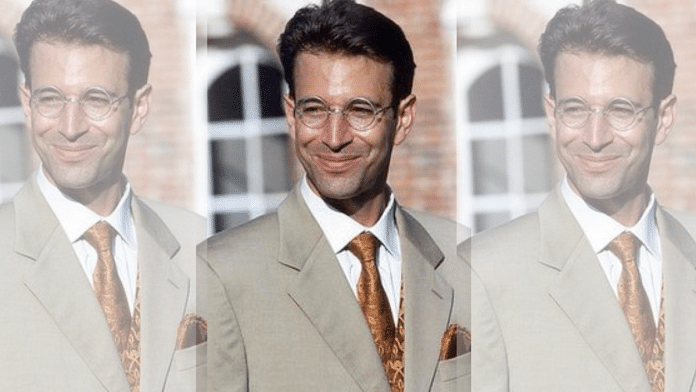Islamabad: Pakistan’s Supreme Court on Monday barred the Sindh government from releasing British-born al-Qaeda leader Ahmed Omar Saeed Sheikh and his three aides – the main accused in the abduction and murder of US journalist Daniel Pearl in 2002.
In April, a two-judge Sindh High Court bench commuted the death sentence of 46-year-old Sheikh, who was convicted in the abduction and murder of Pearl in 2002, to seven years. The court also acquitted his three aides who were serving life terms in the case almost two decades after they were found guilty and jailed.
Two days after the Sindh High Court overturned Sheikh’s conviction, the Sindh government invoked the Maintenance of Public Order to keep the four convicts in jail. Their detention period is set to expire on September 30.
The Sindh government filed an appeal in the Supreme Court against the high court verdict. Pearl’s parents also filed an appeal to the Supreme Court against the judgment of the high court to release the accused.
A three-member bench of the apex court headed by Justice Mushir Alam while granting Sindh government and Pearl’s parents’ petitions leave to appeal against the high court judgment issued notices to all the respondents in acquittal pleas.
Pearl, the 38-year-old South Asia bureau chief for The Wall Street Journal, was abducted and beheaded while he was in Pakistan investigating a story in 2002 on the alleged links between the country’s powerful spy agency ISI and al-Qaeda.
The Sindh government lawyer, Farooq Naek, in his argument insisted that Sheikh was identified by a taxi driver. He said 23 other witnesses also appeared in the trial court to prove charges against the prime accused and others.
He said the crime of kidnapping was proven and endorsed by the Sindh High Court, which quashed the charges of ransom and murder. He argued that the high court should have asked for retrial in case of any ambiguity.
“I will request for the Sindh High Court’s decision to be suspended,” Naek said.
After hearing the argument, the apex court asked the provincial government to keep the prime accused and his aides in detention.
During the proceedings, the counsel for Pearl’s parents, Faisal Siddiqui, argued that Sheikh wrote a letter to the SHC Registrar, but the high court ignored his confession in the letter, he said.
“All the parties, in this case, have filed an appeal against the decision of the high court,” Siddiqui was quoted as saying by the Express Tribune newspaper.
“We want the trial court’s decision to be reinstated. Evidence suggests the abduction was for ransom. The court’s query regarding the element of conspiracy is correct, the counsel stated.
Justice Amin suggested putting Sheikh’s name on the Exit Control List (ECL) as well as Schedule-B, that would bind him to appear before the court.
The court adjourned the hearing for a week.
Unless the apex court overturned the high court judgment, Sheikh would walk free as he already served 18 years behind the bars which is more than life time imprisonment in Pakistan which runs for 14 years.
Also read: What Omar Saeed Sheikh’s acquittal in the Daniel Pearl beheading case mean for India






